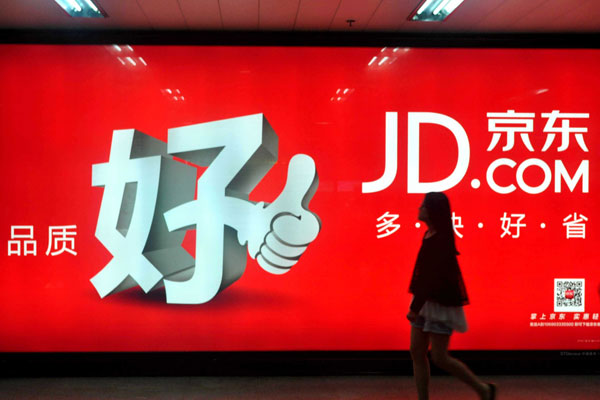Controlling cross-border e-commerce will not help expand domestic demand
(China Daily) Updated: 2016-04-08 07:58
 |
|
An advertisement for e-commerce retailer JD.com Inc in Shanghai. [Photo/China Daily] |
CHINA IS RAISING the tax on retail goods imported by e-commerce organizations by a large margin from Apr 8. Beijing News commented on Thursday:
The cross-border e-commerce industry has boomed because of favorable tax rates since 2014. Some small e-commerce enterprises will probably disappear because of the higher tax rate.
Four reasons are apparently behind the new tax: large amounts of e-commerce import goods increase the customs' supervision costs; the low tax reduces the government's tax revenue; the fast expansion of cross-border e-commerce has had a negative influence on the development of the domestic consumer market; the low tax is unfair to other importers.
But e-commerce companies transport goods directly to a bonded zone and then sell them to individual consumers, which eases the work pressure for customs officials.
And for general importers, their tax base is the manufacturers' price plus freight charges. But the tax base for the e-commerce companies is the goods' retail price, which covers various kinds of costs already. Even under the previous tax rates, the tax burden on e-commerce companies is no lighter than on other importers.
The low price Chinese consumers enjoy in cross-border e-commerce is not because of low tax, but because the trade process of the e-commerce bypasses many intermediate links between the manufacturers and, as well as the brand owners' differentiated pricing in the Chinese market.
The retail price of a luxury bag in China may be 70 percent higher than that in France. The high price originates more from the brand's pricing policy in China rather than the import tax.
Chinese consumers' strong demand for foreign goods comes from their longing for high quality and good services that domestic manufacturers fail to provide. Raising the tax on cross-border purchases will not stop consumers from seeking good products from overseas. Domestic demand will not be expanded simply by controlling cross-border e-commerce.
The government should be prepared to adjust the tax rate according to the latest market changes and consumers' practical needs in the future.

I’ve lived in China for quite a considerable time including my graduate school years, travelled and worked in a few cities and still choose my destination taking into consideration the density of smog or PM2.5 particulate matter in the region.











